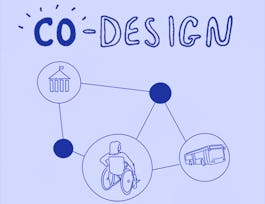Welcome to the sustainable high-end tourism course. Why should you take this course? High-end tourism is a sector and industry that has grown in the last 50 years in an exponential way across the globe. The recent developments in our world -with globalization and sustainability- need to be addressed in this high-end industry. In this course we will have a look at what makes that high-end tourism, what is essential in high-end luxury tourism, and what is not. We'll have a look at the main elements in the sustainability aspect of delivering that service. We'll have a look at how a customer looks at those elements. Because the client's perspective is essential. Once we know that, we'll have a look at how customers experience those products and services and how we manage them. Because lest we forget working in managing high-end tourism is all about creating that added value for the customer, for the personnel, and for those companies. This course has been created through an Erasmus+ project funded by the European Union, with the participation of the Autonomous University of Barcelona (Spain), Lapin AMK (Finland), University of Maribor (Slovenia), Erasmus Brussels University of Applied Science and Arts (Belgium), and the European Center for Quality – ECQ (Bulgaria). The videos in this course have English, Dutch, Slovenian, Spanish Finnish and Bulgarian (български) subtitles available.



Sustainable high-end tourism



Instructors: Petra Paloniemi
Sponsored by Abu Dhabi National Oil Company
2,098 already enrolled
(19 reviews)
Details to know

Add to your LinkedIn profile
5 assignments
See how employees at top companies are mastering in-demand skills


Earn a career certificate
Add this credential to your LinkedIn profile, resume, or CV
Share it on social media and in your performance review

There are 6 modules in this course
In this course we will have a look at high-end tourism and its specificities. We will have a look at the main elements in the sustainability aspect of delivering that service. We will also have a look at how a customer looks at those elements. Because the client's perspective is essential. Once we know that, we will have a look at how customers experience those products and services and how we manage them. Because lest we forget working in managing high-end tourism is all about creating that added value for the customer, for the personnel, and for those companies. Therefore, the course is structured into five main modules: <br>1. Introduction to high-end tourism <br>2. High-end tourism and the three pillars of sustainability <br>3. Customer insight in sustainable high-end tourism <br>4. Marketing sustainable high-end tourism experience products and services <br>5. Operational management of sustainable high-end customer experience
What's included
1 video7 readings
This module is dedicated to exploring the concept of luxury, its evolution throughout history, and its connection to societal changes, from symbolizing status and power to becoming a means of self-expression. We'll delve into how luxury tourism has developed, from the exclusive Grand Tours of the past to the democratization of luxury experiences today. We’ll discuss the changing perceptions of luxury in contemporary society. Luxury is no longer solely about owning rare items but about experiencing pleasure and emotion. We'll explore how luxury experiences are reshaping the traditional concept of value creation and discuss the subjective nature of what constitutes luxury. At the end, we'll delve deeper into the role of human interaction in luxury tourism. We’ll examine how staff selection, continuous training, and personalized service contribute to customer satisfaction. We'll discuss the dynamic and personalized nature of luxury experiences co-created by customers and staff.
What's included
7 videos3 readings1 assignment
This module is dedicated to the study of sustainability and its connections with the high-end tourism sector. In this module we will try to give answer to the following questions: What is sustainable development and how can it be implemented in the field of tourism? What are the three main pillars of sustainable tourism? In the specific case of high-end to tourism, what actions can be done in order to have a more sustainable luxury tourism? In this case, we will pay specific attention to the Global Sustainability Council Criteria for sustainable tourism as an example of a set of actions that can potentially be implemented at any high-end tourism company.
What's included
11 videos3 readings1 assignment
The rising purchasing power and standard of living have promoted the rapid growth of the global luxury travel market over the past few years. Sustainability is also an important element which has become a relevant issue for the luxury tourists. Therefore, customer insights of luxury tourists are drawing increasing attention from hospitality and tourism academics and practitioners. During this module, the student will become acquainted with the definitions, benefits, and various types of customer insight in the context of sustainable high-end tourism. He or she will learn the fundamentals of various customer insight tools and methods related to customer insight, consumer behaviour, and trends from a sustainable high-end tourism perspective. The student will comprehend the significance of the value of the sustainable high-end tourism product for the customer. He or she will be familiar with customer-driven marketing best practices and success stories.
What's included
6 videos2 readings1 assignment
This module will introduce you to the sustainable high-end tourism promotion and marketing, as well as its environmental and economic impact. The student will learn about the sustainable high-end marketing concept and why it is appealing to tourism enterprises and operators; what is the sustainable marketing mix and how it applies to high-end tourism; also, what are the sustainable high-end tourism marketing tools and strategies that can be useful for local business development. The students will learn about international communication in the high-end tourism sector and will know the Dos and Don’ts in international communication, as well as the importance of foreign languages in promoting sustainable tourism. Finally, IT tools for more efficient marketing will be examined and the learners will be introduced briefly to the internet/online/web marketing, e-mail marketing; and social media marketing.
What's included
8 videos2 readings1 assignment
High-end services within the field of international services are challenging due to their temporal nature and constant search for excellence. In this module we will have a look at those challenges and finding answers to whatever the customer throws at you. Integrating the approaches within field of service management, i.e., service design etc., one can identify four important issues: performance measurements systems in service firms, managing innovation in a service environment, managing services across national boundaries and of course defining a service (concept) strategy. In this module we will have a look at each of those issues through video, presentations and a syllabus text that should make you able to tackle pitfalls within the field of operational management of high-end tourism.
What's included
6 videos2 readings1 assignment
Instructors



Offered by
Why people choose Coursera for their career




Recommended if you're interested in Social Sciences

Arizona State University

Eindhoven University of Technology

IMD - International Institute for Management Development

Dubai College of Tourism

Open new doors with Coursera Plus
Unlimited access to 10,000+ world-class courses, hands-on projects, and job-ready certificate programs - all included in your subscription
Advance your career with an online degree
Earn a degree from world-class universities - 100% online
Join over 3,400 global companies that choose Coursera for Business
Upskill your employees to excel in the digital economy









